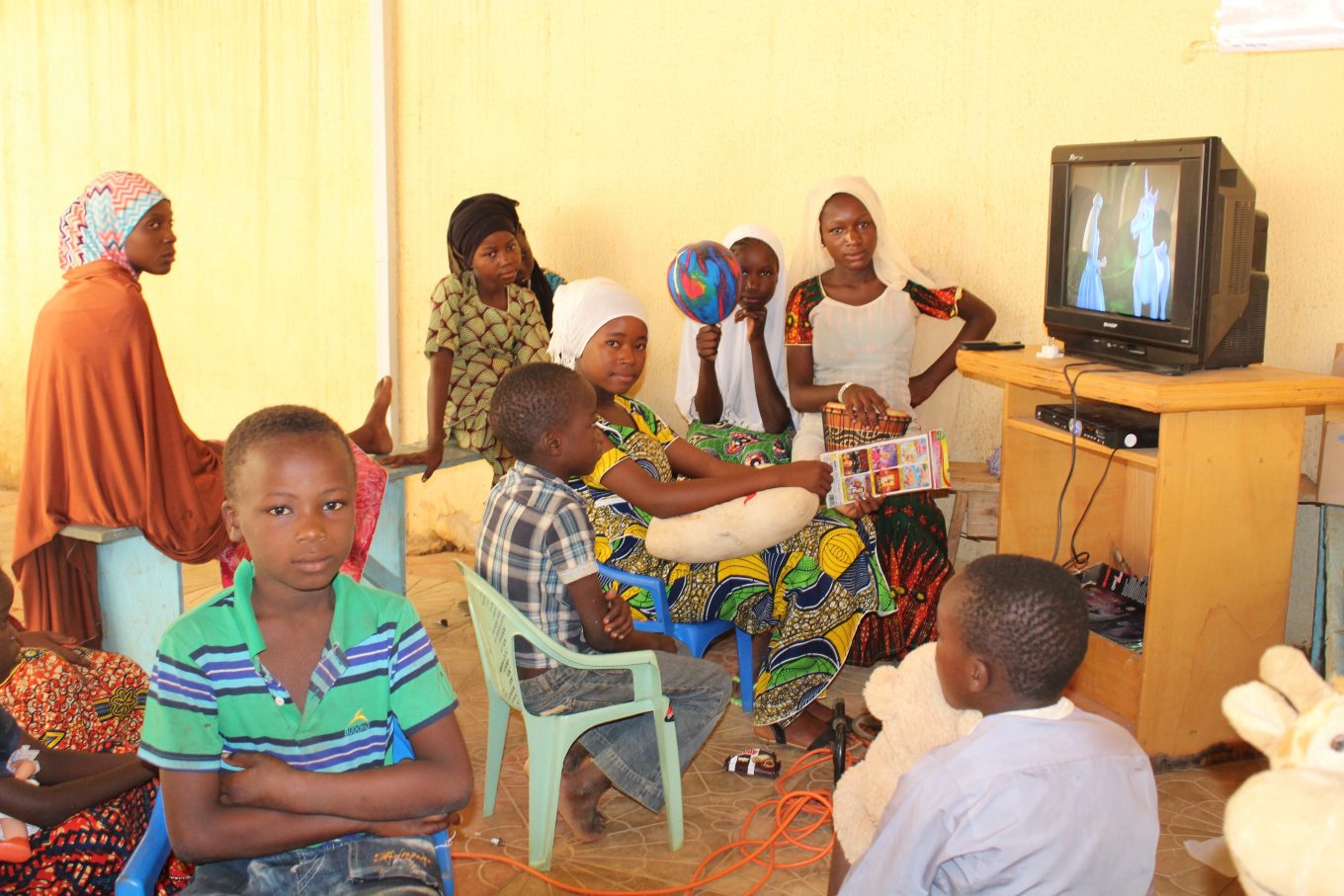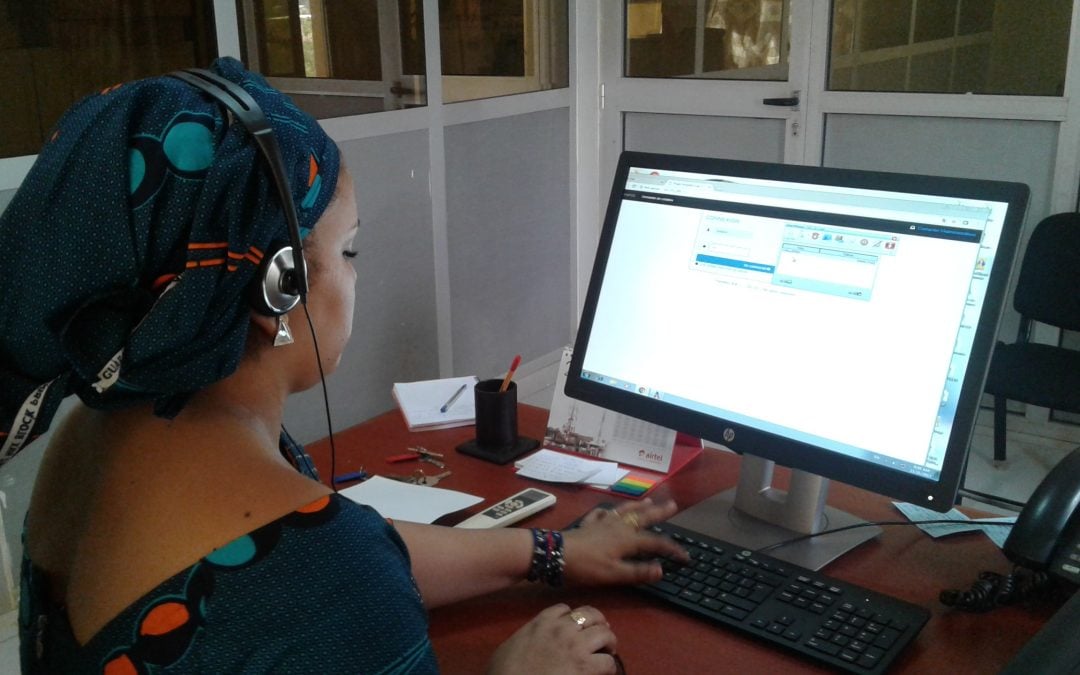The UNHCR Representation in Niger was established in 2012 to respond to the influx of refugees from Mali, following the outbreak of conflict. Since then, the operation has grown in size to respond to additional situations, including the arrival of Nigerian refugees fleeing Boko Haram since 2013, internal displacement in the Diffa region following infiltration by Boko Haram since 2015, and most recently, in relation to the situation of ‘mixed migration’. Niger has become a thoroughfare for migrants and refugees from West Africa moving towards Libya and eventually the Mediterranean and beyond. Niger is also temporarily hosting vulnerable refugees who are being evacuated from Libya, prior to resettlement in other countries.
With over 310, 000 persons of concern in Niger alone, UNHCR recognizes the necessity to provide means of communication for refugees to voice concerns, ask questions etc. This is particularly so for those refugees amongst the mixed migratory flows who are seeking information regarding applying for asylum, but also for urban refugees and those living in the camps.
Therefore, in July 2017, the ‘Ligne Verte’ or ‘Green Line’ was established in Niger. The aim of the service is to provide a free phone number, where refugees and asylum seekers can call to seek information, protection and various services in a confidential manner.
In 2016 UNHCR piloted this free phone number approach in tandem with a gas distribution project in the Diffa region. The project aimed to provide gas bottles to 22,000 vulnerable households. As this was a new project and a completely new approach to domestic energy for the population, a free phone number (sim card) was provided to the Project Coordinator based in Diffa, to enable refugees to call in with questions, to report incidents and to seek information. The free phone number was negotiated between UNHCR, the Niger Ministry of Interior (through the National Commission for Eligibility/CNE) and a national network provider. A minimal monthly payment is made by the CNE to the network provider, to ensure the service. The buy-in of the government into the project ensures its sustainability. Based on the success of this first step, it was decided to use the same number but to share it further, and to respond to all information requests – not just in relation to gas.
In July 2017, the project was scaled-up to service all persons of concern in Niger, rather than solely those beneficiaries of the gas distribution project. The central point is now located in Niamey, where a UNHCR colleague, Hadiza, responds to calls 5 days a week, within working hours, providing information on protection, assistance requests, medical and legal requests, and even responding to emergency calls. Hadiza speaks five languages, including Zarma, Haoussa, Tamasheck, French and English, and so, she has the capacity to communicate with the majority of UNHCR’s population of concern. She is based in UNHCR’s ‘Guichet Unique’ which is a ‘One-Stop-Shop’ for urban refugees and asylum seekers.

A group of refugees in UNHCR’s Guichet Unique.
The Guichet Unique was set up by UNHCR, in partnership with the Niger National Commission for Eligibility (under the Ministry of Interior) in 2013, with the arrival of refugees to the urban area of Niamey. The building brings together partners who provide various services, including; the National Eligibility Commission who register refugees, Humanité et Inclusion who provide assistance in terms of child protection, SGBV, self-reliance support and education; APBE, a national NGO who provide medical support; and UNHCR’s newest partner Forum Refugie Cosi who provide Legal Assistance and Counselling. Normally the questions posed relate to one of the services provided within the building, therefore the operator either passes the request through directly, or indicates a time period (normally 30 minutes) within which they can call back and she will provide the information requested. For more general enquiries, particularly related to asylum, she provides the information herself, based on information developed by the UNHCR Protection Team. Additionally, on several occasions, refugees have called to make a complaint. This has been directly transferred to UNHCR’s Complaints Mechanism which exists in the Guichet Unique, where complaints can be registered on a confidential basis. If a response is required, the information will be shared with the relevant actor for follow up. An SOP has been developed between all relevant partners in this regard.
The number of calls received has significantly increased since August, due to sensitization, including the distribution of flyers, posters, sensitization sessions etc. In August, 94 calls were responded to, while in October, this had increased to 144. The average number at the end of December was 140 per month, while a total of 666 calls were received between mid-August and December 2017. Already in January, this number is increasing, following increased communication and sensitization sessions and sharing of the phone number in the region of Agadez, where the majority of asylum seekers and refugees from West Africa en route to Libya are located. So far, 61% of these calls have come from women and 39% from men.
According to Hadiza, who operates the Ligne Verte “it enables us to improve the services available in the Guichet Unique – it really brings a plus for the refugees. It’s free and it’s confidential. It’s a first for us here in Niger”.
Challenges
This is the first time that UNHCR Niger has piloted such a project, and thus it is evident that challenges have arisen.
Network accessibility: Initially, when the sim card with the free phone number began, the number was for one network only (Orange). However, in Niger, it is not possible to call between networks – many people have more than one sim card for various networks to deal with this. However, for those who possess telephones with just one sim card and thus one network, it was impossible for them to call the free phone number. Therefore, in the past months, through negotiations with the Ministry of Interior and other main service providers (Moov and Airtel), additional sim cards with the same free phone number were provided, while a small monthly payment is made to each network by the Ministry. This has made the number far more accessible for all, as most people have access to at least one of these three primary networks.
Sensitization / Awareness: According to Hadiza, the majority of the calls to date come from refugees and asylum seekers in Niamey, while those coming from the Diffa region mainly relate to gas. Some calls have been received from Malian refugees. This is a very useful tool for refugees and asylum seekers in Niamey, and means they can ask their questions without having to pay the transport fee each time to travel to the centre. However, it is essential that the number is shared further, and benefits more people. A sensitization campaign in the region of Agadez which is currently underway has already had a notable effect, with calls originating from asylum seekers in Agadez increasing. UNHCR is targeting areas where migrants and potential refugees and asylum seekers may see the messages, for example in taxis, at bus stations etc.
As mentioned by Hadiza “It’s so important for those in the mixed migration flows who don’t know they can seek asylum if they are fleeing conflict or persecution. The service enables them to understand that they have options and that there is somewhere they can go for help”.
It is also planned to sensitize the Malian and Nigerian refugees in the camps, so that they too can access the service. The service is there for all refugees and asylum seekers in Niger.
Staffing: As mentioned, there is currently just one staff operating the Ligne Verte. Although Hadiza is extremely efficient and speaks 5 languages, it is impossible that the service is available 24 hours per day. It is available between the hours of 8:00 – 13:00 and 14:00 – 17:30 from Mondays to Fridays. When not available, a recorded message indicates the hours of operation, however, there is no messaging service where people can leave messages.
Lessons Learned:
1) Sustainability and Government Buy-In: Working closely with the Government from the beginning and integrating them within the negotiations with the mobile network companies involved in the project from the beginning has had a positive impact and ensures sustainability.
2) Accessibility: Increasing ‘communication with communities’, sensitization and information sharing has had a significant effect on the use of the services by persons of concern. However, to ensure that the service is truly accessible to all, work remains to be done in terms of hours of operation.
3) Hours of Operation: The service is currently operational only during working hours from Monday to Friday. Although this is a good start, to be truly responsive to the needs of the population of concern, these hours must be extended, and/or a messaging system installed. UNHCR is currently in discussions with a private company operating in Niger and throughout the region, who specialize in mobile communications technology including call centre technology and apps, and who have much experience in this domain. An agreement will be signed in 2018 to ensure that a messaging service is available, and to ensure that recorded messages for certain queries are accessible in the various languages during hours when an operator is not available.
4) Staffing: Despite the dedication of Hadiza, our operator, it is impossible to respond to all queries as one staff member. The Ligne Verte began as a smaller project but has significantly increased in terms of scope and volume of queries. Therefore additional staff must be prioritized to assist in the management of the project.
We’re always looking for great stories, ideas, and opinions on innovations that are led by or create impact for refugees. If you have one to share with us send us an email at [email protected]
If you’d like to repost this article on your website, please see our reposting policy.

